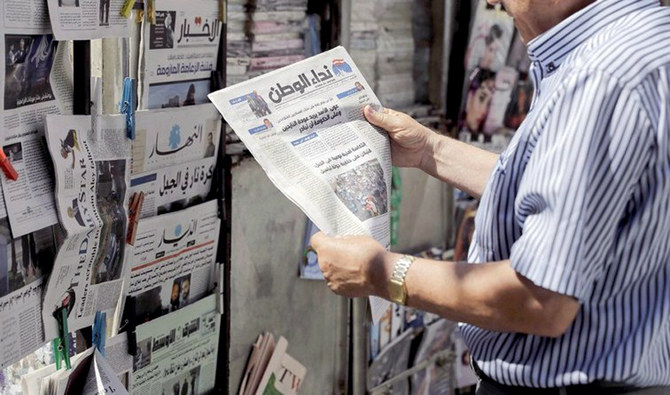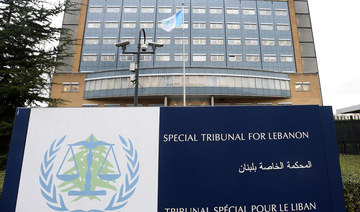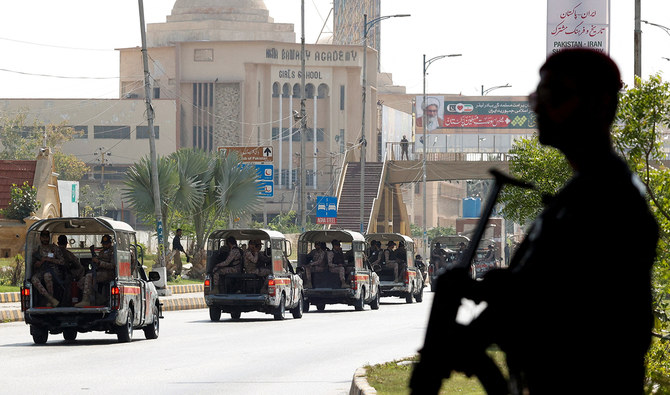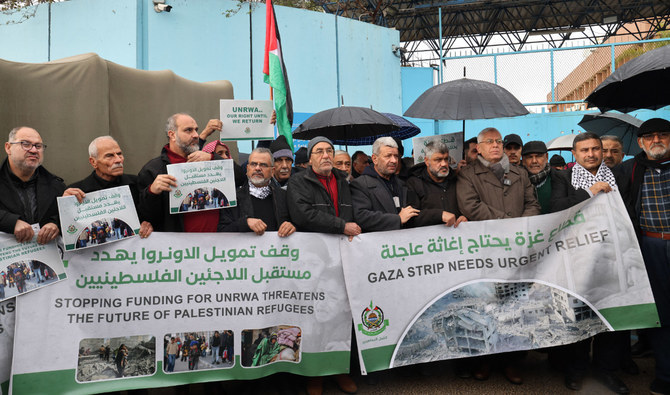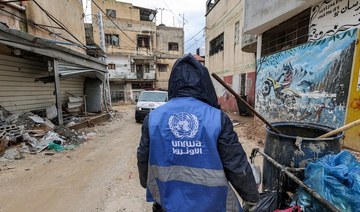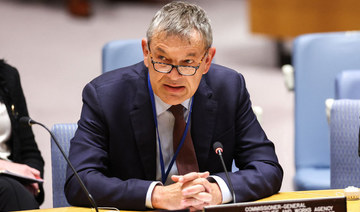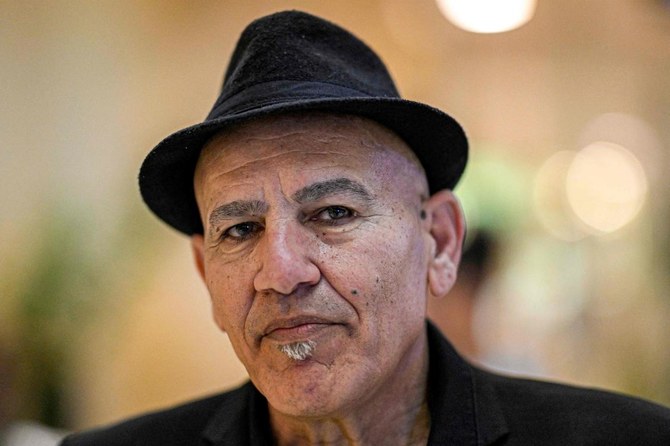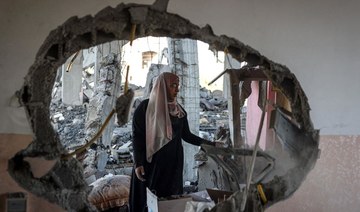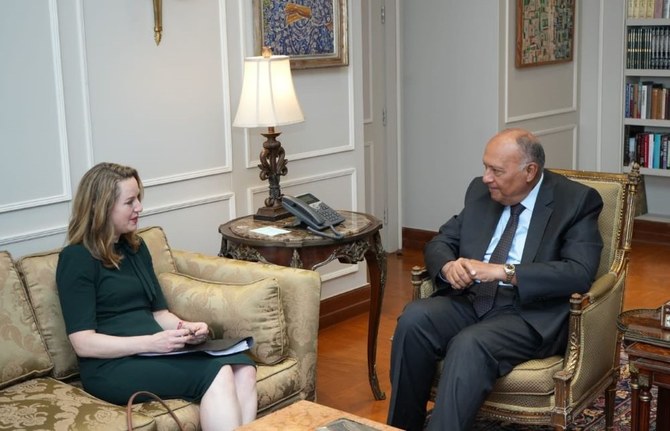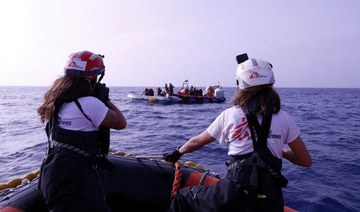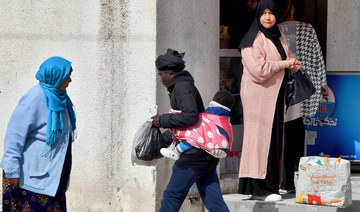BEIRUT: The editor-in-chief of Lebanese and Responsible Director of political daily Nida Al-Watan both appeared before the Cassation Public Prosecution at the Palace of Justice in Beirut on Wednesday.
The two men were summoned before the prosecution following the publication of an article on Sept. 12 — the day seven new ambassadors to Lebanon were due to present their credentials to the president — with the headline, “New ambassadors in the Baabda Palace … Welcome to the Republic of Khamenei.”
The headline referenced a speech by Hezbollah leader Hassan Nasrallah on Sept. 10 in which he said: “We fight under (Iranian leader Ali) Khamenei’s flag.” That speech has been widely condemned on social media in Lebanon.
Both editor-in-chief Bechara Charbel and Responsible Director George Berbari were referred to the Court of Appeal after being heard by the prosecutor general.
The article in Nida Al-Watan spoke of “overthrowing Nasrallah” and claimed, “Lebanon is in the grip of Wilayat Al-Faqih (a central theory of Shia Islam),” and that Nasrallah does not serve Lebanon or the President but only “the Grand Ayatollah, our imam, our leader, and our master, Sayyid Ali Hosseini Khamenei.”
Charbel and Berbari were accompanied to court by a crowd of media professionals, lawyers and politicians, all of whom staged a sit-in protest outside the Palace of Justice.
Charbel said before entering the hearing: “We have nothing to justify, and our right to exercise freedom of expression is (enshrined) in the constitution. This right is guaranteed by law, and we have exercised it. We have come today to affirm our right to exercise freedom of expression. We are under the law and the constitution, both of which allow us to protest.”
He said: “We want a full-fledged republic, and this means we want a presidency and a government that play their role in full, without partners. We want the decisions of war and peace to be in the hands of the state. We have not bashed the presidency.”
The newspaper’s publisher, Michel Mecattaf, denied any “blasphemy to the presidency” and said: “Failure to exercise freedom of expression indicates a contribution to the destruction of the country. We believe in a state of law and institutions.”
Former MP Boutros Harb volunteered to be the defense counsel for Charbel and Berbari. He stressed in the hearing that “the newspaper has exercised its natural role and right to freedom of expression.” He added: “We hope to conclude this case as there is no criminal offense, and we have absolute confidence in the decision that the court will take.”
Former Information Minister Ghazi Aridi, a member of the Progressive Socialist Party (PSP), said: “We cannot but stand with freedom of opinion, which is the stance of (PSP leader) Walid Jumblatt. We reject the targeting of Nida Al-Watan, journalists, and opinion leaders. This must be an inclusive national stance.”
Lebanese Press Syndicate President Awni El-Kaaki, who participated in the sit-in, spoke of the “phenomenon of summoning journalists to appear before court.”
He said: “We have noticed this in (recent times). Political authorities sometimes resort to the judicial authorities to punish journalists, forgetting that the only party legally empowered to prosecute journalists, opinion leaders, and free speech is the Publications Court, and the verdicts are only financial. It is not (legal) to detain any journalist. What is happening to some newspapers is unacceptable.”
Joseph Al-Qasifi, head of the Syndicate of Lebanese Press Editors, told Arab News: “Since the complaint was transferred to the judicial police to request that journalists Charbel and Berbari appear before the Cassation Public Prosecution, I turned to the president and the concerned court, hoping that this case is transferred to the Publications Court, which is the body responsible for the trial of journalists, and not the Public Prosecution. I stressed that no security man should investigate the two journalists, but the responsible judge.”
Antoine Al-Huwais, a lawyer for the Press Editors Syndicate, told Arab News: “Referring the two journalists to the Court of Appeal means that the lawsuit is following judicial procedures. Therefore, the case will be referred to the Publications Court.”
Marwan Hamadeh — a journalist and PSP MP — visited the offices of Nida Al-Watan, where he warned: “The press will be in danger if this fascist family mentality persists.”



